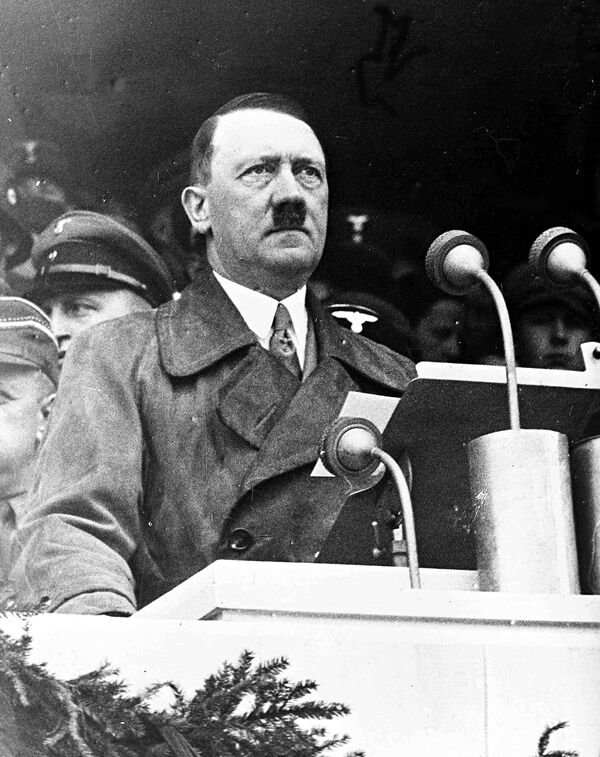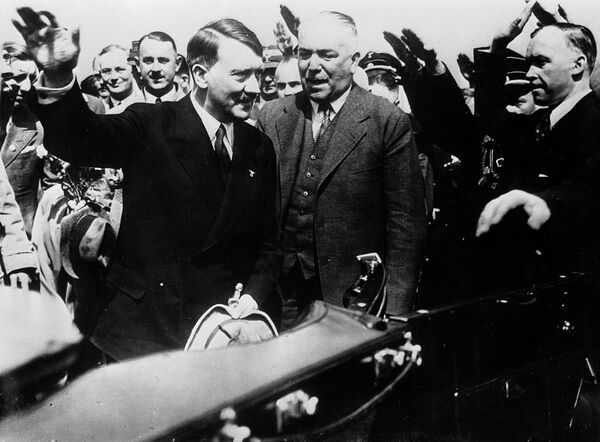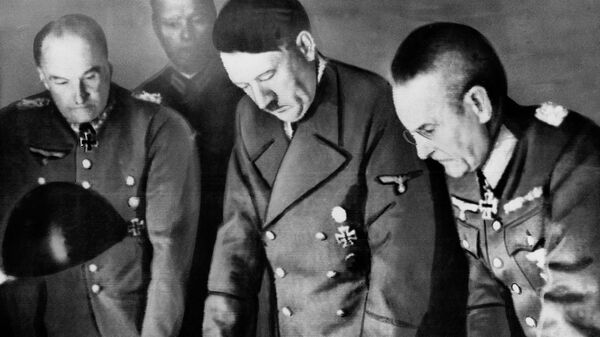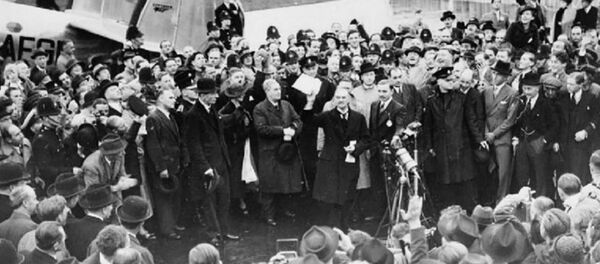Adolf Hitler only joined the Nazi Party after being rejected by the German Socialist Party, leading historian Thomas Weber, a professor of history at the University of Aberdeen, has revealed.
He made his discovery by unearthing a document, indicating that in 1919, the then-30-year-old Hitler sought membership of the German Socialist Party, but was shunned, being told they did not want him in the party, or writing for its paper.
If you're in Cambridge MA on Nov 8, pls join me if u can for my talk on #BecomingHitler at @CES_Harvard https://t.co/vyhj5vrMo7 @BasicBooks
— Thomas Weber (@Thomas__Weber) October 29, 2017
The document records testimony of Hans Georg Grassinger, founding chair of the party.
"In the autumn of 1919, around September, Hitler appeared in the office of the publishing house to see Grassinger and offered to write for the paper, and join and work for the party. He didn't have any money at the time and also asked to borrow money from Grassinger. But they told him they had no use for him in the paper and that they also did not want to have him in the party," Professor Weber summarized.
Professor Weber explained Hitler approached the party in part, because he was looking for a place to belong and "fit in," and find a new "surrogate family" of sorts.
"By this point his parents are dead, and he's lost touch with his surviving siblings. After the war, he desperately tried to stay in the army, but all his peers who had accepted him were demobilized. It was a case of ideological and opportunistic drives coinciding," Professor Weber told Sputnik.
Hitler's 'Radicalization'
The experience of the trenches had radicalized Hitler politically, and in addition to trying to "escape loneliness," by then the ratification of the controversial Treaty of Versailles had confirmed Germany's defeat in the First World War.
"People often mention the 'stab in the back myth' in connection with Hitler, but he actually only used the term once as far as anyone can tell. It's not Hiterlian language — he used the language of biological intoxication and viruses, to explain how Germany lost, and how the country should be recast to survive in a rapidly changing world. He concluded the causes of Germany's internal weakness were the Jews, and its external weaknesses stemmed from insufficient territory, manpower and resources," Professor Weber told Sputnik.
Why Hitler Joined the Nazi Party
He would not forget the snub, however — in 1920 and 1921 (the latter being the year he became the party's leader), it was proposed the German Socialists would merge with the National Socialists on three separate occasions.
While most other senior Nazis were in favor, Hitler steadfastly refused, and even briefly resigned from the party over the dispute.
"If the two unified, as the clear junior partner in the union, the Nazis would've been absorbed, and Hitler feared he himself would be sidelined and ostracized. Hitler being turned down by the German Socialists is fundamental to his joining the National Socialists, and ensuring the party remained an independent entity. Not long after the failed merger, the picture flips, and by 1922 the Nazis are the bigger party — largely due to Hitler's oratorical skills — and the German Socialists are dissolved," Professor Weber said.

Professor Weber is no stranger to challenging conventional wisdom and breaking new information on the Nazi leader.
His 2010 work, Hitler's First War, examined Hitler's years spent as a soldier during World War I, and it was the very first work to do so. However, Professor Weber notes "gaping holes" have often plagued historical research on Hitler.
"It was only in the early 90s historians showed the commonly accepted story, of Hitler being radicalized in pre-war Vienna, didn't make sense. The contradictions in the story were my starting point for my previous book — when that was complete, I realized I'd merely changed the questions, and he'd become even more of an enigma. I was very interested in how he made the leap from awkward loner to the man we all know," Professor Weber told Sputnik.

Somewhat amazingly, Professor Weber noted the document detailing Hitler's failed application to join the German Socialist Party had theoretically been available to researchers since 1961, in the archives of the Institute of Contemporary History in Munich, but had merely gathered dust since, despite Hitler's spirited rejection of the proposed merger long-baffling historians.
"There are a million books on Hitler, but lots just synthesize what others have written. His personal history is not as well-documented as it could be. Some Hitler historians don't speak German, and others in Germany are reluctant to revisit the darkest chapter in the nation's history, and raise certain issues in the process. There's also a worry an undue focus on Hitler could mark a return to the apologetic tendencies of the 1950s, where everything that happened under the Nazis was blamed solely on him," Professor Weber said.
Professor Weber's research will feature in his next work, Becoming Hitler: The Making of a Nazi, which will be published in November.




